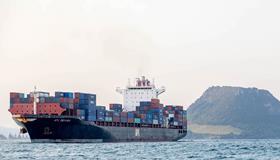
Despite business confidence falling to record lows across the food and drink industry in the second quarter of 2020, untapped overseas export markets remain a golden opportunity for recovery and growth for businesses across the sector.
These are the findings of a new report by Santander UK and the Food and Drink Federation (FDF) which examines the impacts Covid-19 has had on food and drink manufacturers and overall business confidence.
The industry has faced a variety of challenges from the closure of the hospitality and out-of-home sectors, to rising costs and a fall in exports. The sector has also seen a reduction in domestic turnover by 8.6 per cent in Q1 compared with Q4 2019, and a further four per cent decline in Q2.
FDF’s latest data shows that net business confidence among food and drink manufacturers reached a record low of -65.2 per cent in Q2 due toCovid-19, uncertainty over Brexit and the closure of foodservice.
Ian Wright, chief executive of the Food and Drink Federation, said:“As the dust begins to settle, we can now see how the pandemic has had a seriously damaging impact on 2020 ‘s overseas sales of UK food and drink. These were worth over £23 billion in 2019.
“While that figure is certain to fall for this year, there are still plenty of opportunities in foreign markets for UK food and drink manufacturers to seize in what remains of this year and as we look to 2021.
“As businesses turn toward economic recovery, ensuring a quick return to growth will be essential to support resilience in our industry. We will continue to work closely with Government and industry partners, like Santander, to safeguard a sector recovery that will deliver a return to sustainable export growth right across the UK.”
Separately, Santander has carried out research into the impact of Covid-19 on SMEs. The results found that 24 per cent of food and drink businessesexpect to return to normal operating levels by the end of 2020.
Despite the challenging environment, food and drink businesses highlighted increased export growth and access to new UK preferential trade agreements as a key opportunity for the rest of the year.
UK food and drink exports are recognised globally for their quality, provenance, and heritage, and are now worth more than £23 billion annually.
The report highlights export opportunities in three key market regions: the UAE and the wider Gulf region, China, and the US and Canada.
Canada:Exports to the UK’s third largest non-EU preferential trade partner have grown by 5.7 per cent so far in 2020, led by exports of gin, beef and salmon.
US:Closures to the hospitality sector due toCovid-19have led to an increase in demand for ready to consume alcoholic drinks. UK exports of beer to the USA have increased by 5.8 per cent year on year from January to May this year. There has also been significant investment in home delivery as US supermarket chains have sought to increase their e-commerce offerings in recent months.
China:China has seenrapid growth in demand as consumers continue to perceive UK products to be safe and of high quality, with a sense of heritage. Beef and pork exports have risen by over £60 millionso far this year compared with the same period the year before.
UAE and the Gulf:The Covid-19 crisis has seen an increase in expected sales from retail – up to 90 per cent from 70 per cent in 2019. The increasing focus on healthier lifestyles in the region has seen increased demand for organic, functional foods, and nutritionally rich products.
Looking forward, there remains significant headroom for growth for UK food and drink exporters, according to the report, both within the EU27 and other international markets.
The FDF has identifiedseven stepsfor recovery designed to successfully restart all areas of industry, as part of its work through the Food and Drink Sector Council. These include protecting the UK’s supply chain integrity and competitive position and accelerating plans to increase UK exports.



